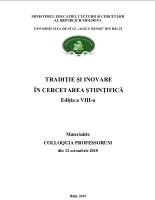
Утицај Охридског споразума на начела адекватне и правичне заступљености, употребу језика, симбола и писама, децентрализацију и образовање у Републици Македонији
The paper elaborates on the theoretical aspects of equality and righteous representation of ethnic communities in public administration, as well as the implementation of these principles in the positive law of the Republic of Macedonia. The principle of equality is a constitutionally guaranteed right for all citizens of the Republic of Macedonia, thus this principle is applied in employment procedures in public administration. Following the constitutional amendments which incorporated the Ohrid Framework Agreement after 2001, the principle of equality faced a very complicated situation, needing to be implemented in parallel to respecting righteous representation of minority communities in public administration. This specific principle, although accepted as a democratic benefit, in time became a key for entrance i.e. employment in public administration. The paper provides a legal frame¬work through which this principle is implemented in positive administrative law: Law on General Administrative Procedure, Law on State Servants, Law on Public Servants (until 2015), Law on Administrative Servants, Law on Employees in the Public Sector etc. In conclusion, the paper presents an empirical analysis of the implementation of this principles in practice. The specifics of the situation in the Republic of Macedonia presented in this paper, argue how a democratic principle aiming to achieve righteous representation of all communities and strengthening the representative character of the administration, can be twisted and turned in to a mechanism for pure partisan and ethnic based employment.
More...


